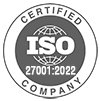The rising competition in every sector compels businesses to stay ahead of the curve just to survive. Despite that, only a few companies continuously outperform their rivals and set industry standards. Why is that? The answer lies in the way businesses benchmark their products, services, operations, and growth strategies. This blog unveils the closely guarded secrets that top businesses use to consistently improve their performance and dominate markets.
Top Insider Tips to Benchmark Like a Pro
In this blog, we'll explore the intricacies of professional-grade benchmarking. You'll discover how to identify the factors that matter most to your business and learn the significance of selecting the right benchmarking partners.
-
Identify Relevant Key Performance Indicators (KPIs)
Effective benchmarking techniques include the identifying of KPIs that are crucial to your business success. These KPIs should reflect your core objectives and areas where performance improvement can drive significant value. Metrics such as customer satisfaction, operational efficiency, revenue growth, and market share are often the top KPIs. You can make your benchmarking efforts more meaningful and targeted by focusing on these factors.
-
Choose the Right Benchmarking Partners
Choosing the right partners is an important aspect of business process benchmarking. It is crucial to identify businesses that are leaders in your industry or those excelling in the areas where you seek improvement. These could include direct competitors, market leaders, or even companies from different industries renowned for their best practices. The right partners, like professional benchmarking services, provide a robust and relevant comparison that offers actionable insights into what makes them successful. These can be adapted to innovate your processes and elevate your business performance.
-
Leverage Technology and Analytics Tools
One of the top benchmarking best practices is leveraging technology and analytics tools. Advanced software solutions help you gather and analyze vast amounts of data efficiently. These tools enable you to identify trends, track performance over time, and gain actionable insights based on real-time data.
You can make informed decisions quickly to optimize your business processes and strategies by utilizing technology. This data-driven approach not only enhances the accuracy of your benchmarking efforts but also provides a competitive edge in a dynamic market.
-
Conduct Regular Benchmarking Reviews
The best way to maximize the benefits of benchmarking for business is to make it an ongoing process rather than a one-time event. Regularly reviewing and updating your benchmarks ensure they remain relevant to your evolving business goals and market conditions.
This continuous assessment helps you stay agile, adapt to changes, and maintain a competitive edge. Therefore, competitive benchmarking analysis helps you identify new opportunities for improvement and stay ahead of your competitors.
-
Engage Cross-functional Teams
Involving teams from various departments such as marketing, finance, operations, and customer service is one of the most efficient types of benchmarking. Engaging cross-functional teams provides diverse perspectives that reveal more comprehensive insights and innovative solutions. Each department brings unique expertise and viewpoints, which enriches the benchmarking process, making it more accurate. This collaborative approach fosters a culture of continuous improvement and ensures that the entire organization is aligned in its efforts to achieve business excellence.
-
Translate Insights into Actionable Strategies
Collecting data is only half the battle; the real value lies in translating these insights into actionable strategies. Use the findings from your benchmarking efforts to implement specific improvement plans, set new performance targets, and drive continuous growth across your organization.
Focus on practical steps that are easy to execute and monitor the progress. You can make data-driven decisions that lead to tangible improvements and sustained success by acting on the insights gained.
Key Takeaways for Effective Benchmarking
Imagine having a clear roadmap that not only identifies where you stand but also highlights the precise steps you need to take to surpass your competition. Benchmarking offers just that, allowing you to measure your business against the best in the industry. Business benchmarking tools help uncover inefficiencies and highlight opportunities for exponential growth.
Whether you're looking to enhance operational efficiency, boost customer satisfaction, or innovate your product offerings, the insights gained from an effective benchmarking implementation strategy can be transformative. Integrating insider tips into your benchmarking process will equip you to enhance your business performance and gain a competitive edge.

View all our Research Analysis Services
Get a FREE QUOTE!
Decide in 24 hours whether outsourcing will work for you.
Have specific requirements? Email us at: info***@outsource2india.com
USA
116 Village Blvd, Suite 200,
Princeton, NJ 08540
Frequently Asked Questions (FAQs)
How does benchmarking function in businesses?
Benchmarking involves comparing a company's performance metrics against industry standards or best practices. It identifies gaps, sets improvement goals, and implements strategies to enhance efficiency and productivity.
Why is benchmarking so important for companies?
It is a crucial aspect that provides objective performance assessments, uncovers inefficiencies, and identifies industry best practices. This enables companies to innovate, improve processes, and maintain a competitive edge.
What is the role of benchmarking in enterprises?
Enterprises use benchmarking to identify performance gaps, set realistic goals, and adopt best practices. It drives continuous improvement, enhances operational efficiency, and fosters a culture of excellence.
How can businesses leverage benchmarking to boost productivity?
Businesses can use benchmarking to identify inefficiencies, adopt industry best practices, and set performance targets. This leads to enhanced processes, streamlined operations, and increased productivity.












